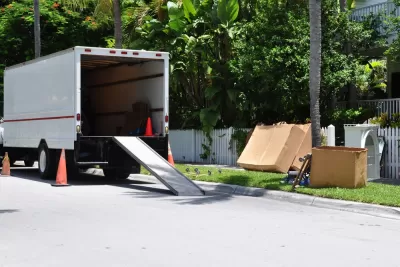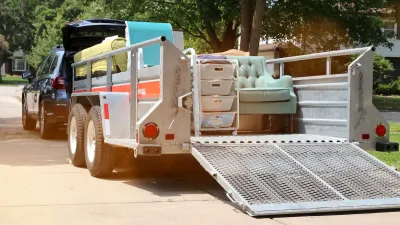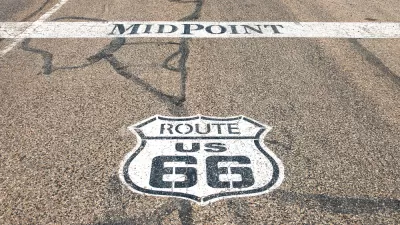For the fifth year in a row, the number of Americans moving is down.

The number of American moving has receded 11% since last year. "The decline marked the fifth straight year in which the share of the population moving dropped," Don Lee reports. Lee argues that this change doesn't just reflect changing demographics or preferences but a decline in economic mobility.
In the past American workers' willingness to move distinguished them from their counterparts in other mature economies like those in Japan and parts of Europe.
Some speculated that the recovery would spark more moves, but that has not happened. "…lingering effects from the recession and demographics suggest that many people will remain tethered to where they are," Lee reports.
FULL STORY: Americans’ declining economic mobility reflected yet again in fewer moves into new houses and apartments

Maui's Vacation Rental Debate Turns Ugly
Verbal attacks, misinformation campaigns and fistfights plague a high-stakes debate to convert thousands of vacation rentals into long-term housing.

Planetizen Federal Action Tracker
A weekly monitor of how Trump’s orders and actions are impacting planners and planning in America.

San Francisco Suspends Traffic Calming Amidst Record Deaths
Citing “a challenging fiscal landscape,” the city will cease the program on the heels of 42 traffic deaths, including 24 pedestrians.

Defunct Pittsburgh Power Plant to Become Residential Tower
A decommissioned steam heat plant will be redeveloped into almost 100 affordable housing units.

Trump Prompts Restructuring of Transportation Research Board in “Unprecedented Overreach”
The TRB has eliminated more than half of its committees including those focused on climate, equity, and cities.

Amtrak Rolls Out New Orleans to Alabama “Mardi Gras” Train
The new service will operate morning and evening departures between Mobile and New Orleans.
Urban Design for Planners 1: Software Tools
This six-course series explores essential urban design concepts using open source software and equips planners with the tools they need to participate fully in the urban design process.
Planning for Universal Design
Learn the tools for implementing Universal Design in planning regulations.
Heyer Gruel & Associates PA
JM Goldson LLC
Custer County Colorado
City of Camden Redevelopment Agency
City of Astoria
Transportation Research & Education Center (TREC) at Portland State University
Jefferson Parish Government
Camden Redevelopment Agency
City of Claremont





























